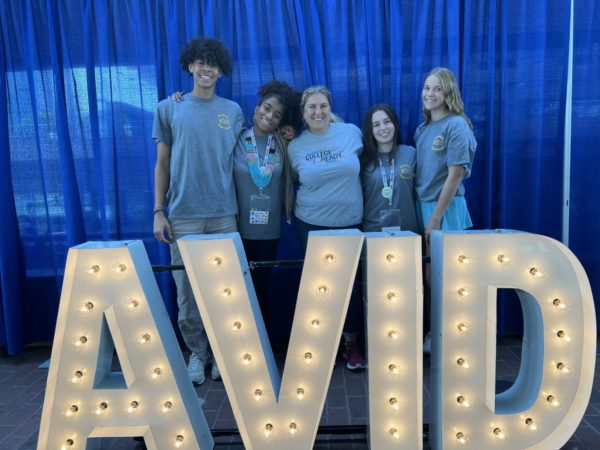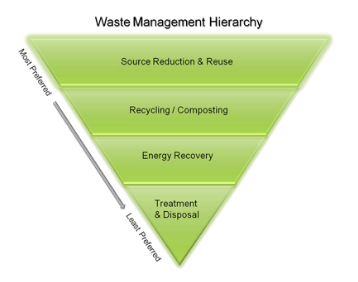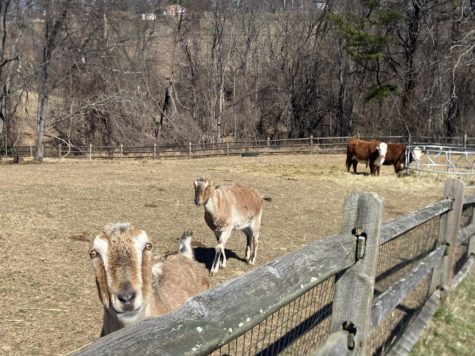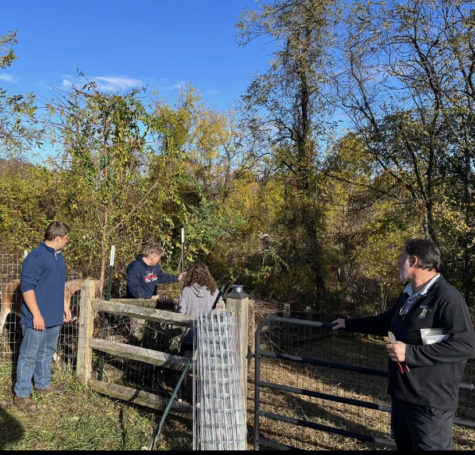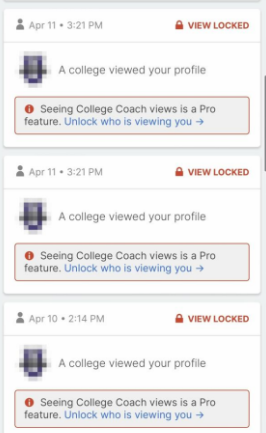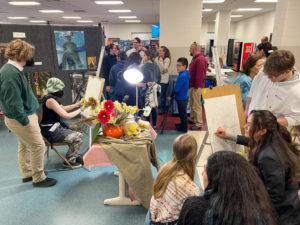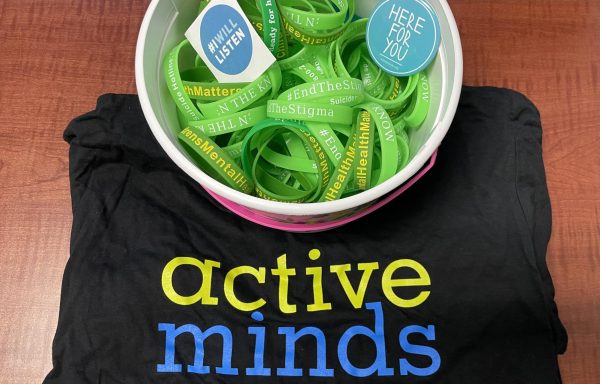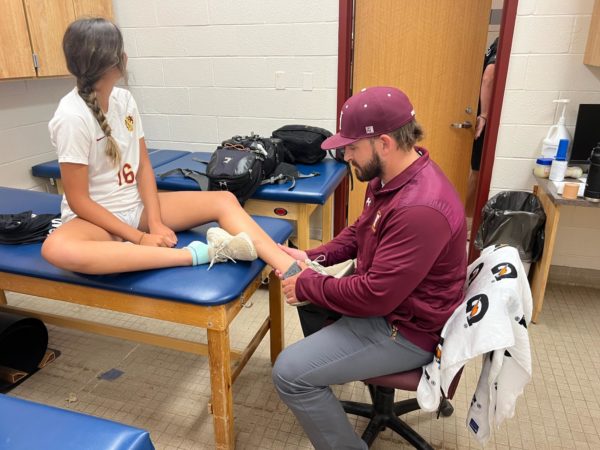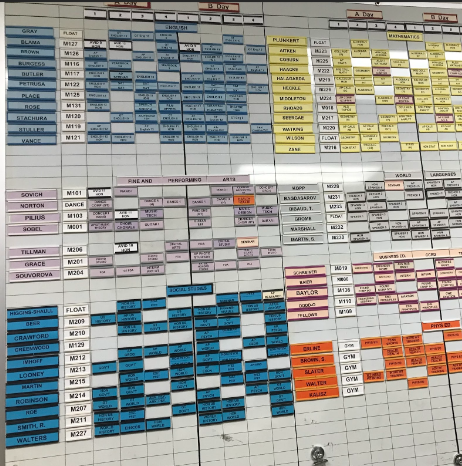Earn to Learn provides agriculture experience
Maddison O’Brien (’21) [left] and Trina Gerovasilis (’20) [right] both participate in the agriculture program this year. “Food chemistry and getting into things like food production is really interesting. We talked a lot about GMOs which is a bag controversy,” Gerovasilis said.
November 14, 2017
In June, a new program called Earn to Learn began at the Community College of Baltimore County (CCBC) in Hunt Valley. Earn to Learn is designed for those who are interested in earning college credits in the agriculture field without having to attend a standard four-year college.
It started with Andreas Grothe, a local landscaper and president of New World Gardens. Grothe was born and raised in Germany; he studied landscaping for three years to earn his landscaping degree through a German apprenticeship. He came to the United States wanting to educate more people about the agriculture world while infusing German teaching.
“For four days a week [the] student works in a local company, [it] could be a landscape company, or a nursery, or a tree farm and then one day a week the students are going to Hunt Valley to CCBC and from eight until five they take classes. That goes on for two years and they have a certificate, if they add one more year, they actually have a landscape and a landscape design degree,” Grothe said.
After the two years, the student will have earned 39 credits.
“Each participating employer has agreed to pay 80 percent of their student’s tuition. The 20 percent that the student pays each semester will be held in an escrow account and when the student graduates from the two-year [American Landscape Institute] program they will get their entire 20 percent tuition returned to them. They will be graduating debt-free with a two-year certificate in landscape design and installation,” Martha Pindale, the executive secretary of the American Landscape Institute, said.
Over the summer, students have mandatory evaluations before they go to work for a company to make sure that what they chose to study is right for them. All students have to take entry exams for CCBC as well to make sure academics are fit for the position.
“If a student would call me tomorrow and ask to work for me and with me, I would not really think that they have to bring any skills,” Grothe said.
Pindale said that most people think that landscaping is just mowing lawns and blowing leaves.
“People don’t realize how much of a variety of fields there are as you graduate. So, I think knowing that is really helpful,” Trina Gerovasilis (’20) said.
Earn to Learn offers a variety of agricultural learning opportunities.
“This year I wanted to take ag because I am interested in plants and learning more about nature and having to do with mechanics because I really like the outside world and I just feel like I really can actually connect with nature and I felt like doing ag would help me connect more with that,” Maddison O’Brien (’21) said.





